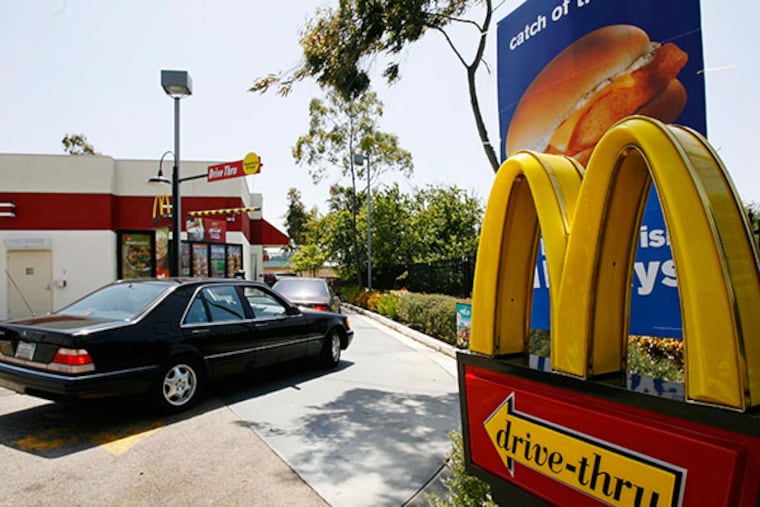PhillyDeals: Uneven economic benefits spur push to raise minimum wage
The Federal Reserve and the U.S. Treasury saved the banks, corporations are pocketing record profits, rich investors are getting richer.

The Federal Reserve and the U.S. Treasury saved the banks, corporations are pocketing record profits, rich investors are getting richer.
But most Americans aren't sharing that wealth. Average hourly earnings, adjusted for inflation, are stuck at 1970s levels, the U.S. Labor Department reported. Retail and home sales are still slow. How will we grow our way out of this slump?
More states are pushing for an alternative method to boost wages: brute force. Which is to say, higher minimum wages.
Most of the states surrounding Pennsylvania are on board. New Jersey voters in November approved a raise from the national $7.25 an hour to $8.25, plus future inflation increases. New York's just rose to $8 and is heading to $9, in stages. Ohio has adopted a cost-of-living allowance that will boost the wage to a nickel under $8 next month.
Maryland is going a bit further. Montgomery and Prince George's Counties are using a new state law to boost their minimums, in stages, to $11.50 an hour, matching Washington, D.C.
Among Pennsylvania's neighbors, that leaves only depressed West Virginia and Delaware, a one-party state where business-friendly Democrats have so far resisted a higher minimum. State Rep. Bryon Short (D., New Castle) said this month that he was switching to back an increase, a sign the party feels pressure from the citizens.
Pennsylvania Rep. Mark Cohen (D., Phila.) is lead sponsor of a state bill that would also push wages to $11.50.
Higher wages may be attractive to some of his Oxford Circle constituents, especially the workers, many of them immigrants in rented rowhouses, who pull down as little as $300 a week in Cottman Avenue stores and nearby industrial parks, folks who have to double- and triple-up to afford $1,000-plus monthly rentals.
Cohen says he expects little support from Wal-Mart, the state's largest employer, which is building its largest-ever warehouse near Bethlehem, or Amazon.com, which has found in upstate Pennsylvania and downstate Delaware rich sources of cheap warehouse land and labor. (Though some, at least, want more: Maintenance workers at Amazon's big, new Middletown, Del., plant have petitioned to join the machinists' union.)
"The employer community would prefer tax cuts," Cohen said. "But we've already had massive business tax cuts in Pennsylvania. That's one reason we're in such poor financial shape. We can't afford all the subsidies, starting with Medicaid, that go to low-income workers.
"If we raise the minimum wage, we encourage spending among low-income people. That creates jobs and reduces welfare spending."
Republicans run Pennsylvania. Won't they kill this bill before it gets out of committee?
This goes beyond party, insists Cohen: Ex-Gov. Ed Rendell got a Republican-led legislature to approve the last state minimum increase, in 2008.
Won't higher wages hurt the poor by wiping out dollar burgers at McDonald's and cheap goods at low-wage outfits like Wal-Mart?
"Obviously, at some point there's an increase in prices. But there's also an increase in purchases," Cohen argued. "A store can't unilaterally announce it's raising salaries. But if all the other stores have to do it," that's fair play, and they can all cash in on higher sales to better-paid workers.
Enough pressure and even the Republican-led U.S. House may pass a national wage increase, Cohen concluded.
Pennsylvania Democrats plan a hearing for Cohen's bill at City Hall on Jan. 9. Cohen says he hasn't invited the local chambers of commerce, "But when it starts looking like this will pass, you'll see they will engage."
215-854-5194 @PhillyJoeD